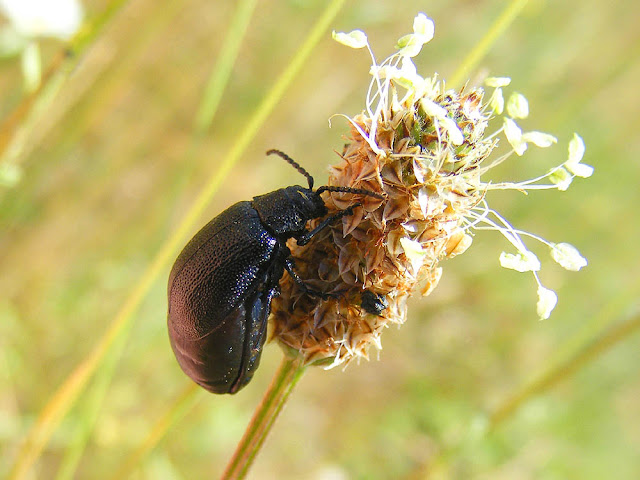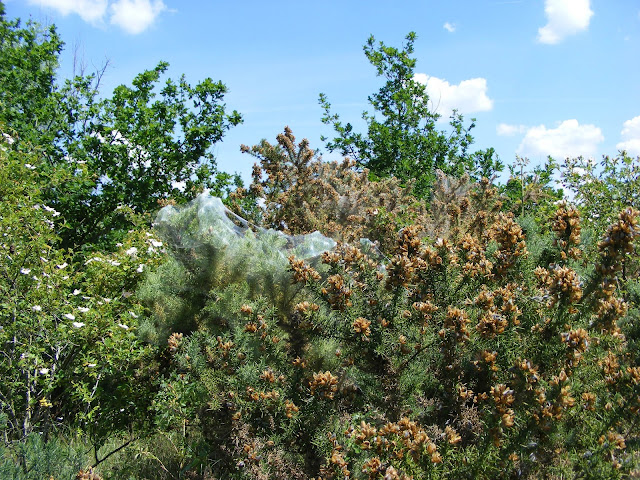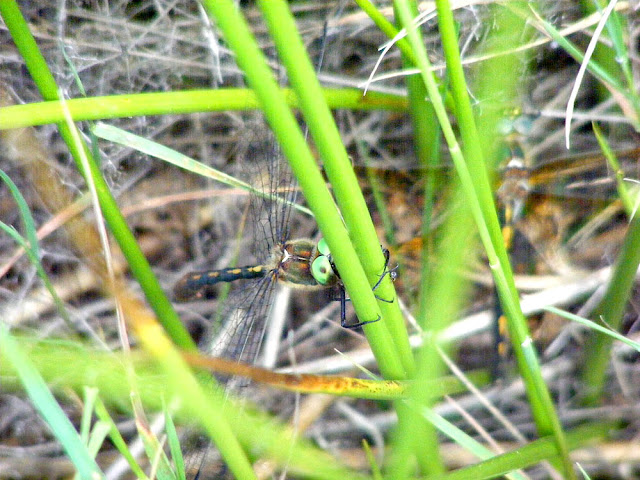On Saturday 12 June I went over to a site called La Cabane. It's privately owned and I had previously arranged with the owner to go there. Saturday was very hot and sunny, but that is the best sort of weather to visit this particular site. It is very rich in dragonfly species and has a very interesting mix of plants. The site is waterlogged in winter and very dry in summer. At its heart is a former kaolin pit, now full of water. Over the past few years various naturalists, including me, have been visiting it and keeping careful records of the species they see there, because it is on its way to being declared a Zone naturelle d'intérêt écologique, faunistique et floristique (a nature site of interest ecologically and for its flora and fauna). Here are some photos from my latest visit.
 |
There was a tree over the already overgrown entry track, but luckily, having been there several times before, I knew how to enter the site from the delightfully named la Touche au Lard, on the other side.
|
 |
A pink Dianthus sp (Fr. un oeillet).
|
 |
The leaf beetle Galeruca tanaceti, a female full of eggs, clinging to a plantain flower.
|
 |
The web made by Gorse Spider Mite Tetranychus lintearis. There was only one gorse bush affected and it looked like someone had wrapped it in clingfilm which had melted in the sun.
|
 |
The site is the only place in Indre et Loire where Tongue Orchid Serapias lingua (Fr. Sérapias langue) is present, and they are everywhere in the long grass.
|
 |
A paper wasp Polistes dominula, which I photographed by accident as it came back to its nest under a sheet of corrugated iron.
|
 |
A male Orange-spotted Emerald dragonfly Oxygastra curtisii (Fr. la Cordulie à corps fin) trying to hide, but with those traffic light green eyes, not very successfully.
|
 |
A male Orange Featherleg damselfly Platycnemis acutipennis (Fr. l'Agrion orange). This was a new species for me.
|
 |
The former kaolin pit at the heart of the site, now filled with water.
|
 |
Yellow Bartsia Parentucellia viscosa (Fr. Bartsie visqueuse). This was a new species for me.
|
 |
Male Scarce Forester moth Jordanita globularae (Fr. Procris des centaurées).
|












2 comments:
Great photos Never seen the Forester Moth before. Nice colour.
Deptford Pink
Post a Comment